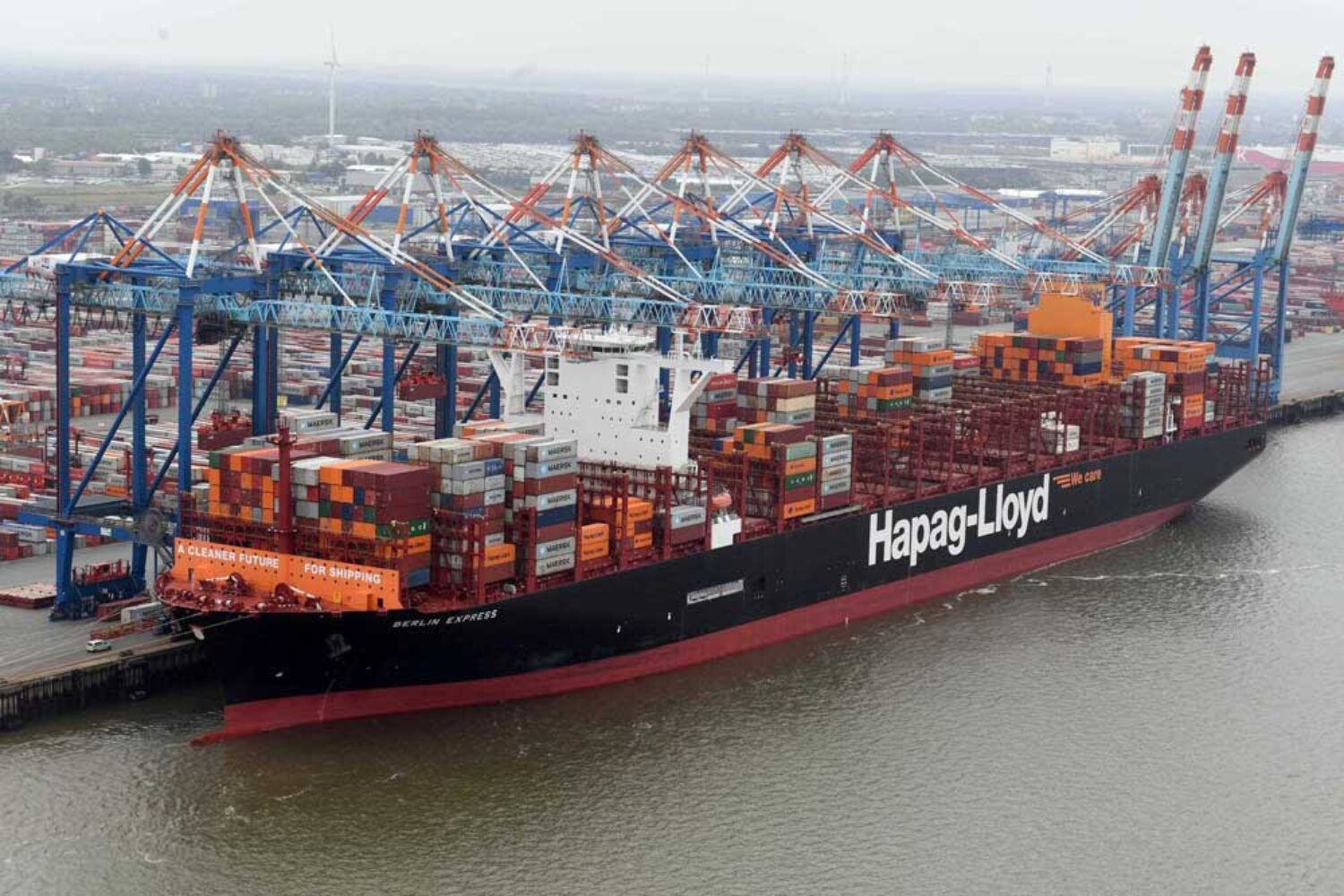The almost 400 m long and 61 m wide “Berlin Express” of Hapag-Lloyd’s Megamax class has been in service for almost two years.
Now it has called at the JadeWeserPort in Bremerhaven and the NTB terminal in Bremerhaven for the first time as part of the Gemini alliance with the Danish shipping company Maersk. Six container gantry cranes were deployed there simultaneously to unload the cargo.
The “Berlin Express”, built in South Korea, was the first ship in the newbuilding series of twelve identical vessels that the shipping company Hapag Hapag-Lloyd is having built. The twelve-ship series as a whole will be completed this summer with the delivery of the “Wilhelmshaven Express”.
“Berlin Express” sails between Europe and Asia
The container ships of this Hamburg Express class are to sail exclusively on the cargo-intensive Far East route between Asia and Europe. In addition to Wilhelmshaven and Bremerhaven, the new NE1 joint service operated by Hapag-Lloyd and Maersk in Northern Europe will only call at Rotterdam. The departure and destination ports in China are Shanghai and Ningbo. The return journey from Bremerhaven and Rotterdam to Shanghai, via the Cape of Good Hope, is currently expected to take around 49 days.
Following its delivery in August 2023, the “Berlin Express” with a capacity of almost 24,000 standard containers was christened in Hamburg on October 2, 2023 by Elke Büdenbender, the wife of German President Frank-Walter Steinmeier. The ships in this class are operated by just 27 seafarers.
On board the container giant, there are 1,500 connections for reefer plugs for perishable goods alone. With a generator output of 18.5 MW, the engine generates enough electricity to supply around 40,000 households for a year. In addition to conventional marine diesel, the mega freighter can also run on liquefied natural gas (LNG), which emits around a quarter less CO₂. However, the engine needs marine diesel to start up, as a spokesperson for the shipping company explained. By using LNG, Hapag-Lloyd, like all shipping companies, is responding to the gradually tightening global emissions standards. (CE)













